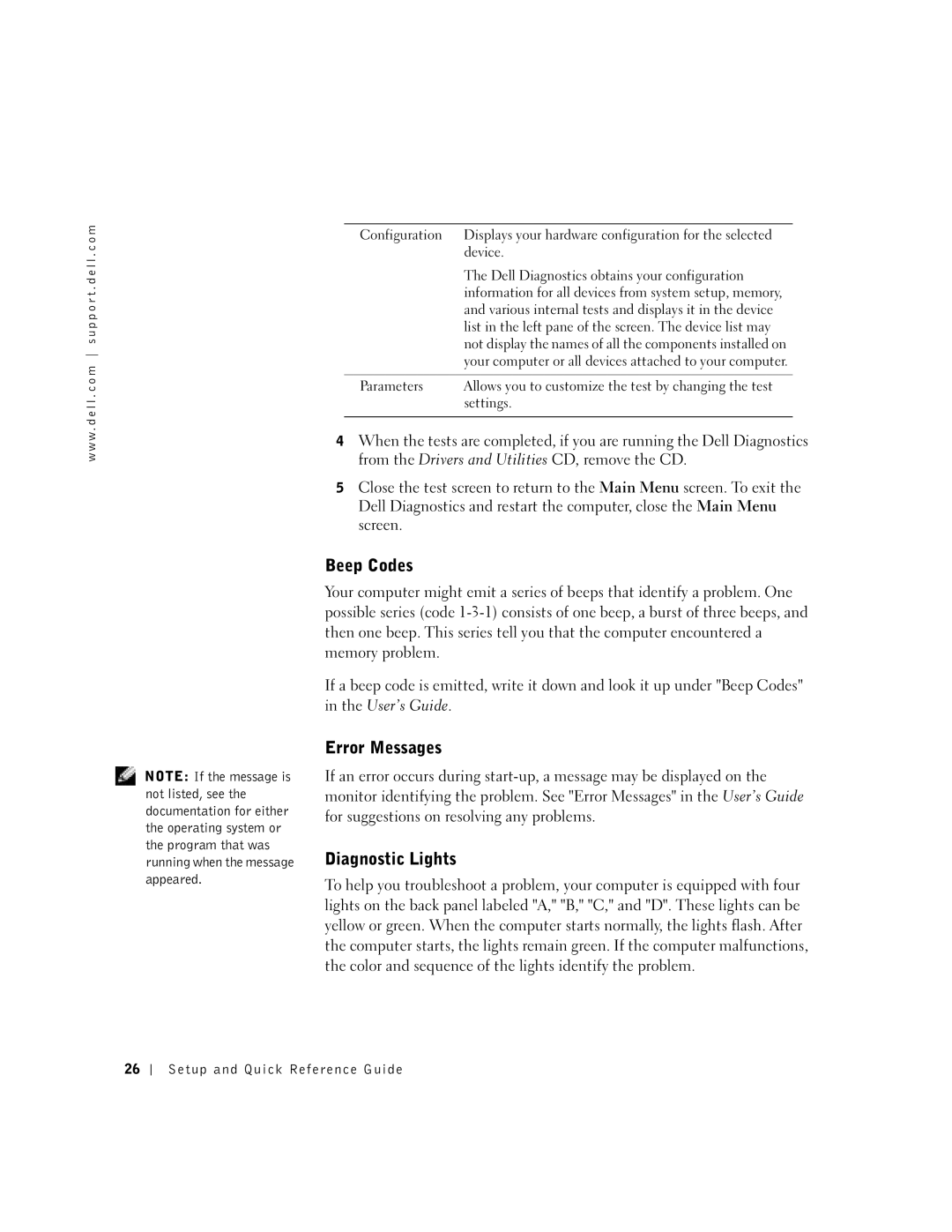
w w w . d e l l . c o m s u p p o r t . d e l l . c o m
NOTE: If the message is not listed, see the documentation for either the operating system or the program that was running when the message appeared.
Configuration | Displays your hardware configuration for the selected |
| device. |
| The Dell Diagnostics obtains your configuration |
| information for all devices from system setup, memory, |
| and various internal tests and displays it in the device |
| list in the left pane of the screen. The device list may |
| not display the names of all the components installed on |
| your computer or all devices attached to your computer. |
|
|
Parameters | Allows you to customize the test by changing the test |
| settings. |
|
|
4When the tests are completed, if you are running the Dell Diagnostics from the Drivers and Utilities CD, remove the CD.
5Close the test screen to return to the Main Menu screen. To exit the Dell Diagnostics and restart the computer, close the Main Menu screen.
Beep Codes
Your computer might emit a series of beeps that identify a problem. One possible series (code
If a beep code is emitted, write it down and look it up under "Beep Codes" in the User’s Guide.
Error Messages
If an error occurs during
Diagnostic Lights
To help you troubleshoot a problem, your computer is equipped with four lights on the back panel labeled "A," "B," "C," and "D". These lights can be yellow or green. When the computer starts normally, the lights flash. After the computer starts, the lights remain green. If the computer malfunctions, the color and sequence of the lights identify the problem.
26
